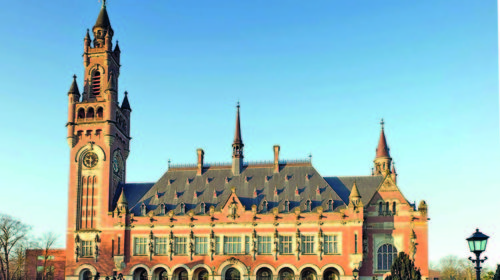
The International Court of Justice (ICJ) has postponed the long-anticipated hearing of the Guyana/Venezuela border dispute case that was scheduled for March 23, 2020, citing the worldwide crisis of the coronavirus.
According to a statement from the Ministry of Foreign Affairs, the ICJ has communicated to Guyana that the oral proceedings that were scheduled to begin on March 23 have been postponed until a new date can be set.
“In the case concerning the Arbitral Award of 3 October 1899 (Guyana V. Venezuela), the International Court of Justice has informed Guyana that the oral proceedings scheduled to begin on March 23, 2020, have been postponed due to the current worldwide health crisis. The Court has further informed that it will give a decision on a new date in due time,” the statement read.
Since Guyana recorded its first coronavirus case on March 11, there have been three more confirmed cases.
In a previous notice, the Hague, Netherlands-based ICJ had informed the parties of the schedules for the upcoming public hearings to determine whether the Court has jurisdiction to preside over the matter. The first round of oral arguments was supposed to be held on March 23, 2020, and Guyana would have been presenting its pleadings on that day.
The following day was awarded to Venezuela. Hearings on both days were to commence at 10:00h and run until 13:00h (Netherlands time).
Meanwhile, the second round of arguments was slated for March 25 when Guyana would have been presenting from 16:30h to 18:00h. Venezuela would have then presented on March 27 from 10:00h to 11:30h. The sessions were to be streamed live on the Court’s website.
Guyana filed its case with the World Court on March 29, 2018, seeking a final and binding judgment that the 1899 Arbitral Award, which established the location of the land boundary between the then-British Guiana and Venezuela, remains valid and binding, and that Guyana’s Essequibo region belongs to Guyana, and not Venezuela as is being claimed by the Spanish-speaking country.
The case was filed following a decision by Secretary General of the United Nations, António Guterres, in January 2018, that the controversy between Guyana and Venezuela should be decided by the ICJ.
The Secretary General made the decision by exercising the power vested in him in the 1966 Geneva Agreement between Guyana, Venezuela and the United Kingdom to decide how the controversy should be settled.
However, Venezuela had claimed, in a letter to the World Court, that the Secretary General exceeded his authority under the Geneva Agreement, and therefore, the Court lacks jurisdiction to adjudicate the lawsuit filed by Guyana. (Jarrell Bryan)



